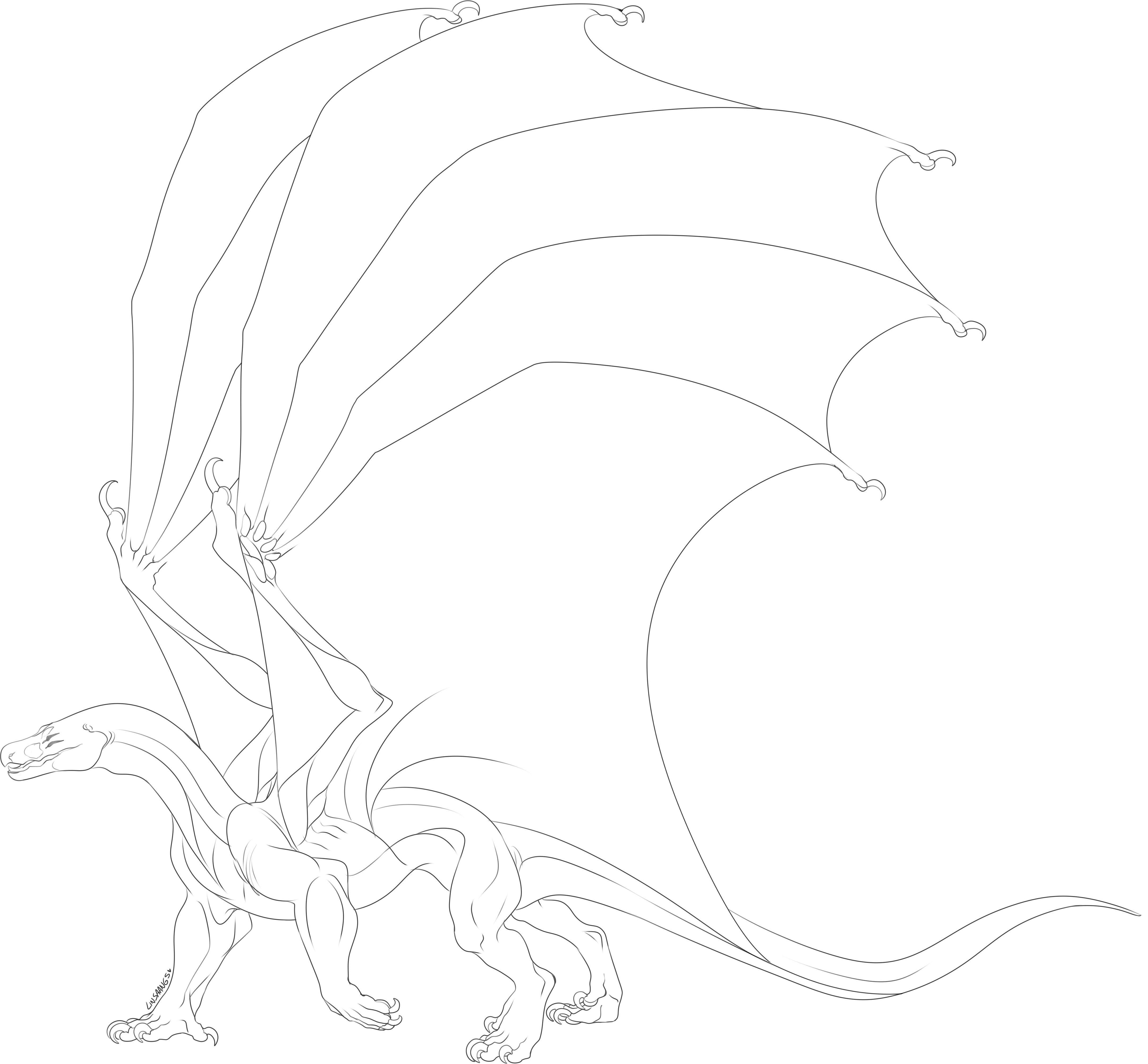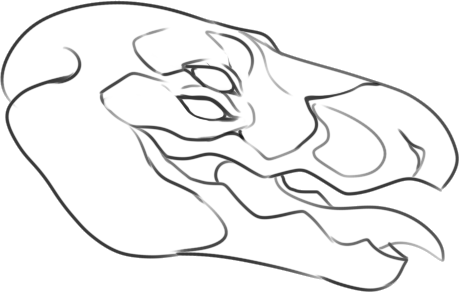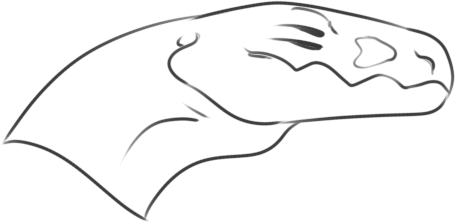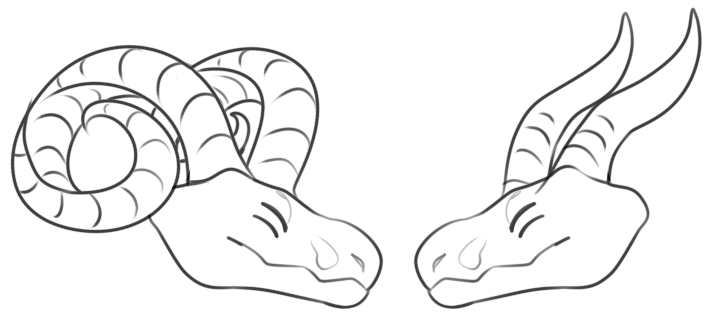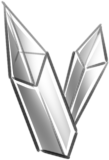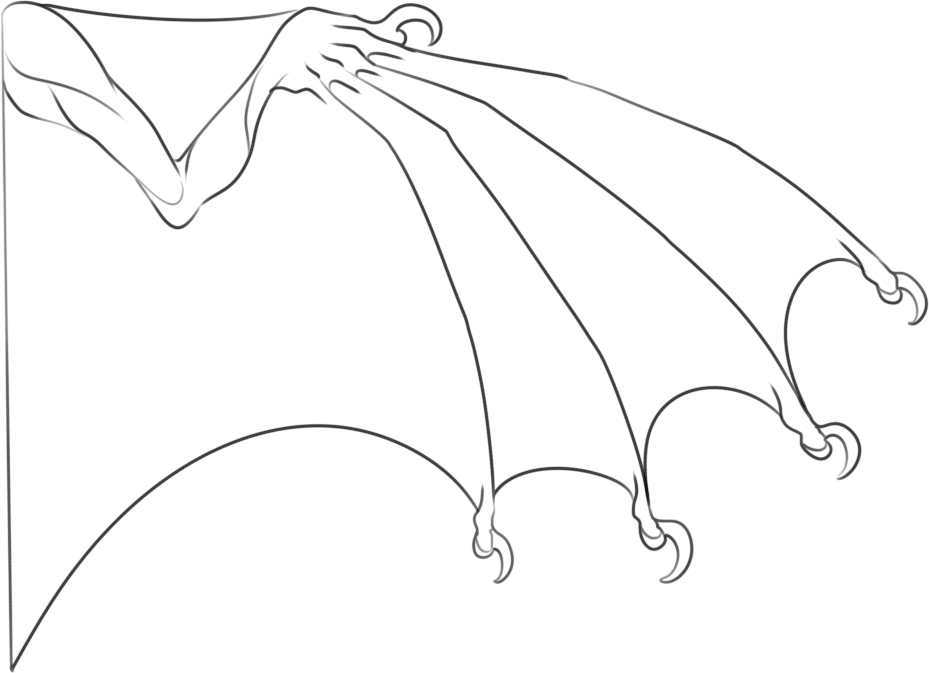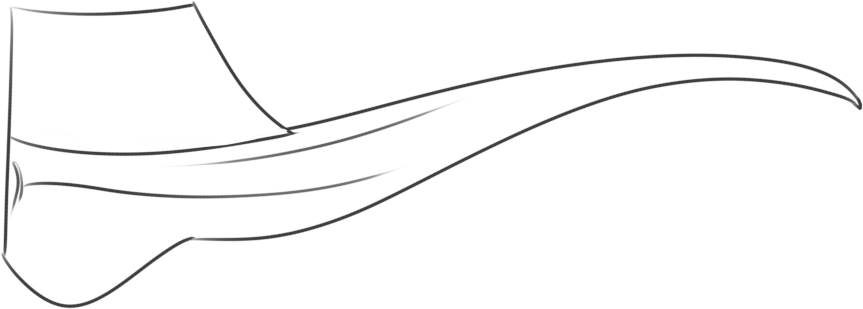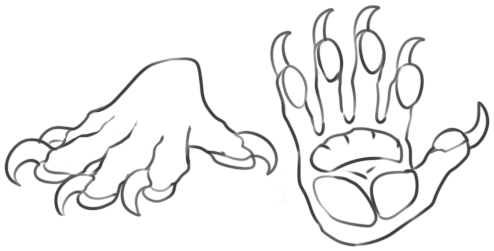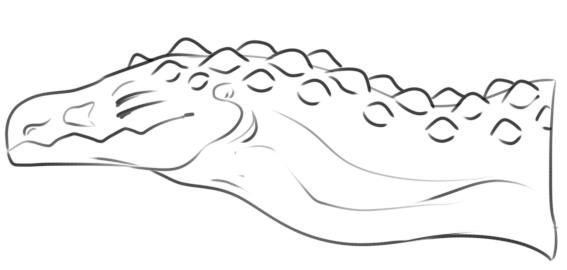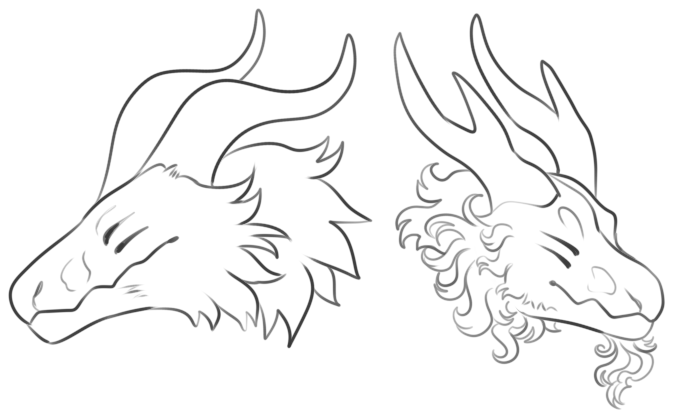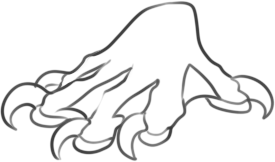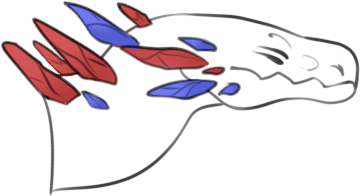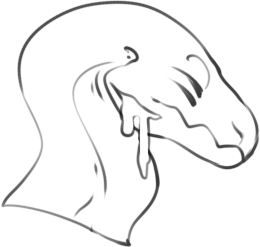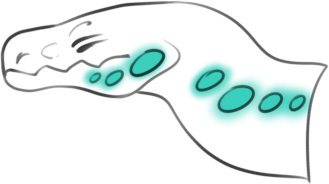Traits
Crysalla Standard Body (Common)
Thick, muscular, sturdy bodies. Large front legs, straight back, thin hind legs, and stiff tail. These Crysalla are built for strength, and aren’t very flexible.
Crysalla Standard Head (Common)
Average head shape of a Crysalla
Crysalla Rounded Head (Common)
“Egg” shaped head, no dip between snout and forehead
Crysalla Bone Horns (Common)
“True” horns, a permanent extension of the skull with a keratin covering.
Crysalla Point Crystals (Common)
Rhomboid, most common orientation.
Crysalla Rounded Crystals (Common)
Smooth, circular or ovalline appearance
Crysalla Twin Crystals (Common)
Two or more crystals joined together
Crysalla Standard Wings (Common)
Built like a bird of prey; optimized for speed, agility, and raw strength for lifting their heavy skeleton into the air
Crysalla Standard Tail (Common)
The standard Crysalla tail is long and thick, and slightly stiff, to offset the weight of the body. The wing membrane extends to about half of it, and it has a prominent dip of the hip bone.
Crysalla Standard Digits (Common)
Standard length, average hand
Crysalla Scutes (Common)
Dermal growth similar to scales. Vary in size, from small bumps to prominent ridges.
Crysalla Fur (Common)
Can grow anywhere on the body, at any length and type, such as wiry, downy, oily, etc.
Crysalla Granular Scales (Common)
Bumpy, raised scales of varying size and shape.
Aquilla Internal Gills (Common)
Narrow slits typically open along the neck, and can extend down the line of the ribcage. Range from small semicircles to shaped openings
Aquilla Standard Webbing (Common)
Standard toe length, good for all around swimming
Crysalla Different Color Crystals (Common)
Two or more different colors of the same crystal species as the Soul Stone grow.
Crysalla Hemophilia (Common)
In Crysalla, the inability for the blood to naturally crystallize when exposed to nitrogen in air, and can lead to severe blood loss. Most commonly a result of accidental inbreeding.
Crysalla Glowing Crystals (Common)
Crystals glow in the dark.
Crysalla Deafness (Common)
Partial or complete hearing loss, so the Crysalla must rely on vibrations alone, or sight, used sparingly. Communication proves difficult, as they have to rely on speaking words they cannot hear, since other Crysalla will not open their eyes to watch hand signs.
